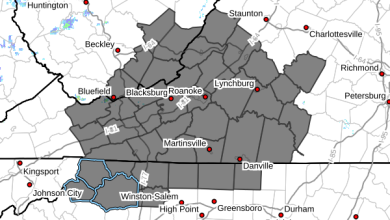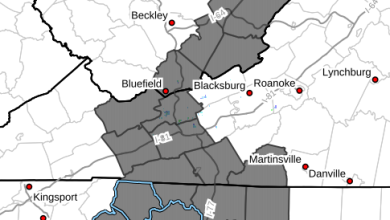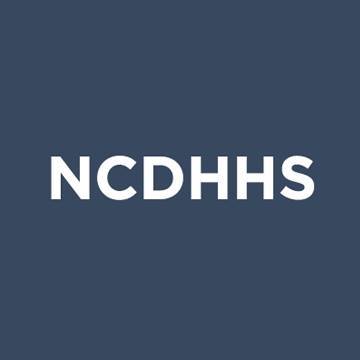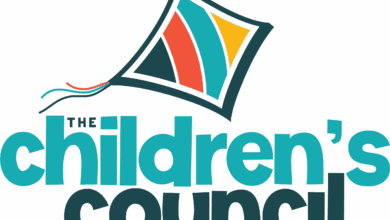Last Updated on June 5, 2019 3:37 pm
[Boone, NC] — According to the Centers for Disease Control and Prevention (CDC), 981 cases of measles have been confirmed in 26 states from January 1 to May 31, 2019. This is the greatest number of cases reported in the U.S. since measles was declared eliminated in 2000. Among all measles patients, 90% were unvaccinated. No cases of measles have been identified in North Carolina in 2019.
Recent outbreaks are linked to unvaccinated travelers infected with measles who brought measles back to the United States from other countries where large measles outbreaks are occurring. When measles is brought into an under-vaccinated community it becomes difficult to control the spread of the disease.
What is measles?
Measles is a serious respiratory disease (in the lungs and breathing tubes) that causes a rash and fever. It is very contagious. In rare cases, it can be deadly.
What are the symptoms of measles?
Measles starts with a fever that can get very high. Some of the other symptoms that may occur are:
- Cough, runny nose, and red eyes
- Rash of tiny, red spots that start at the head and spread to the rest of the body
- Diarrhea
- Ear infection
Signs & Symptoms
Measles is a highly contagious virus that can be spread through coughing, sneezing and contact with respiratory secretions of an infected person. The symptoms of measles generally appear about 7 to 14 days after a person is infected.
Measles typically begins with:
- High fever (over 101°F),
- Cough,
- Runny nose and
- Red, watery eyes
Two or three days after symptoms begin, tiny white spots (Koplik spots) may appear inside the mouth. Three to five days after symptoms begin, a rash begins on the face and spreads to the rest of the body.
Vaccination
Vaccination with the measles, mumps and rubella (MMR) vaccine is the best way to protect against measles. One dose of measles-containing vaccine administered at age 12 months or older is approximately 93% effective and 2 doses of measles-containing vaccine is more than 97% effective.
Am I protected against measles?
The CDC considers you protected from measles if you have records showing at least one of the following:
- You have received two doses of the MMR vaccine and you are a school aged child (grades K-12) or an adult in a setting that is high risk for measles transmission,
- You received one dose of the MMR vaccine and you are a preschool aged child or an adult who will not be in a setting that is high risk for measles transmission,
- You were born before 1957.
The CDC recommends children get two doses of the MMR vaccine: once between age 12 to 15 months and again between the age of 4 and 6 years.
There is no link to autism and vaccines (CDC). Vaccinations are one of the best ways to protect against infectious diseases. If you are not sure of your vaccination status, contact AppHealthCare or your healthcare provider. “We urge parents and caregivers to make sure their children are fully immunized. Please, don’t let cost be a barrier to your child being protected. If you want to learn more, call your local AppHealthCare office or your healthcare provider,” said Jennifer Greene, Health Director.
Travel
Most measles cases in the United States are from international travel. Plans to travel to another country or to an area in the United States that has an active measles outbreak should start with a conversation with your healthcare provider or the local AppHealthCare office since specific guidance for your protection will be based on your current immunization history and health factors. For a list of travel notices, visit the CDC website www.cdc.gov/measles/travelers.html.
“We are working closely with state and local partners to monitor the measles outbreaks and prepare. We encourage everyone to know their vaccination history. This can be provided by our office or your healthcare provider. Prevention through immunization is the most important way for us to protect our families and our community from the spread of measles,” stated Jennifer Greene, Health Director, AppHealthCare.
Shelly Klutz, Head Nurse for Watauga County Schools stated, “Watauga County Schools shares the views of AppHealthCare about the importance of obtaining age appropriate vaccines. Students spend over six hours a day in close proximity with each other which can increase the risk of transmitting contagious illnesses. We feel the best way to protect our students, faculty, staff and visitors is to encourage everyone to make sure their vaccinations are up to date. Watauga County School Nurses monitor immunization compliance as students enroll in school for the first time and as additional vaccines/boosters are needed. We provide education to parents of students who may be missing immunizations, provide resources and work with them on a catch up. With the recent outbreaks of measles across the country, Watauga County Schools Nurses have been vigilant in our assessment of students presenting to the health room not feeling well. Our main priority is to protect all students, faculty, staff and visitors within our school system.”
To date, no cases of measles have been identified in North Carolina.
Additional information
- Measles cases and outbreaks in the U.S.: https://www.cdc.gov/measles/cases-outbreaks.html
- Increase in measles cases: https://www.cdc.gov/mmwr/volumes/68/wr/mm6817e1.htm?s_cid=mm6817e1_w
- Provider resources for vaccine conversations: https://www.cdc.gov/vaccines/hcp/conversations/index.html
For additional information about AppHealthCare or other community resources and health related data, please call our offices, Alleghany (336) 372-5641, Ashe (336) 246-9449, Watauga (828) 264-4995 or visit our website at www.apphealthcare.com and follow us on Twitter and Facebook.
















